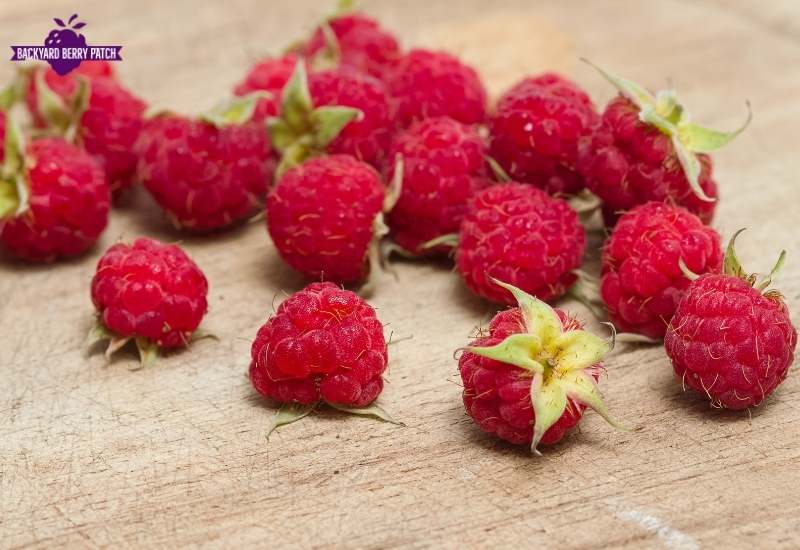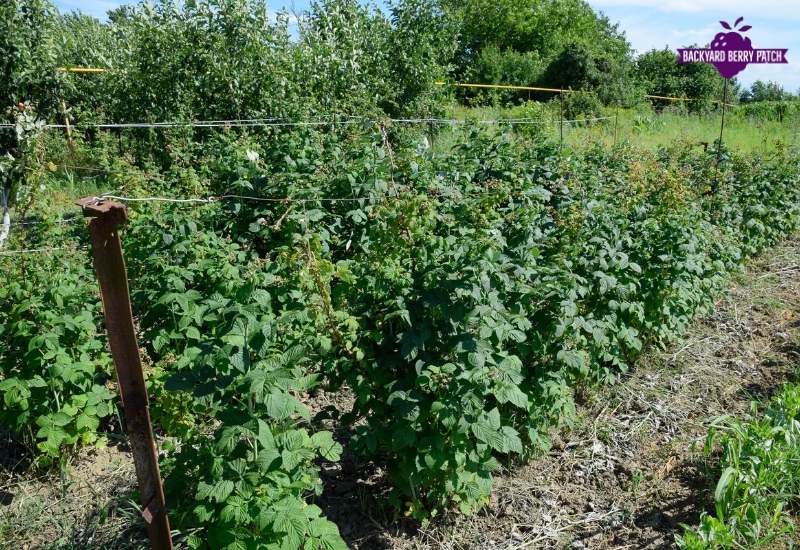Thinking about growing raspberries in Maryland? You’re in for a treat! These juicy berries are perfect for snacking, making jam, or baking into a delicious raspberry shortcake.
The best raspberries to grow in Maryland are Killarney, Heritage, and Nova varieties. These thrive in the state’s climate and produce sweet, flavorful fruit.
Raspberries are easy to grow and can give you a bountiful harvest with the right care. You’ll love picking fresh berries from your own backyard!
Whether you prefer red, black, or purple raspberries, there’s a variety that will suit your taste and garden.
When choosing raspberries, think about how you’ll use them. Some varieties are great for canning and making jam, while others are best eaten fresh. You might also want to consider the shelf life if you plan to store your berries.
With the right mix of raspberry plants, you can enjoy these sweet treats all summer long!
Maryland Climate and Soil Overview
Maryland has a unique climate that’s great for growing raspberries. You’ll find the state spans plant hardiness zones 5b to 8a, which is ideal for many raspberry varieties.
The state experiences hot summers and cool winters. Raspberries love full sun, so pick a spot in your garden that gets plenty of light. Be careful with afternoon shade in the hottest parts of summer.
Maryland’s soil is diverse. You might have clay, loam, or sandy soil depending on your location. Raspberries prefer:
- Well-draining soil
- pH between 5.5 and 6.5
- Rich in organic matter
Don’t worry if your soil isn’t perfect. You can improve it! Add compost or aged manure before planting. This boosts nutrients and helps with drainage.

Water is key for juicy berries. Maryland’s rainfall varies, so keep an eye on moisture levels. You may need to water during dry spells.
Watch out for late spring frosts as they can damage early blooms. Consider planting cold-hardy varieties for better success.
Recommended Thornless Raspberry Varieties in Maryland
Growing thornless raspberries in Maryland can be a joy for gardeners. You’ll love how easy they are to handle without worrying about prickly thorns.
One great option is the Joan J raspberry. This primocane variety is perfect for fall harvests and does well in containers.
Another excellent choice is the Polka raspberry. It’s nearly thornless and produces sweet, flavorful berries. You’ll appreciate its hardiness in Maryland’s climate.
For yellow raspberries, try Fall Gold. This everbearing variety gives you two harvests – one in summer and another in fall.
Here’s a quick list of other thornless or nearly thornless varieties to consider:
- Anne (yellow)
- Canby (red)
- Raspberry Shortcake (dwarf, great for containers)
Most raspberries are self-pollinating, so you can grow just one plant and still get fruit.
To support your raspberry plants, use a trellis system. This helps with air circulation and makes harvesting easier.
Primocane varieties like Joan J are especially convenient. You can cut all canes to the ground in late winter, simplifying pruning.

Recommended Thorny Raspberry Varieties in Maryland
You’ll find several thorny raspberry varieties that thrive in Maryland’s climate. These plants produce delicious berries and can be a great addition to your garden.
One popular choice is the Heritage red raspberry. It’s known for its sweet flavor and good yield. You’ll need to prune Heritage raspberries in late winter to encourage new growth.
Royalty is another option to consider. This purple raspberry variety is vigorous and produces large, flavorful berries. You’ll love its unique color and taste.
For summer-bearing raspberries, try Boyne or Killarney. These varieties are hardy and produce fruit on floricanes (second-year canes). You’ll need to remove old canes after fruiting to make room for new growth.
When planting thorny raspberries:
- Space plants 2-3 feet apart in rows
- Leave 6-8 feet between rows
- Provide support with a trellis or wire system
Keep your raspberry patch weed-free and well-watered. Mulch around plants to conserve moisture and suppress weeds.
Remember to watch for suckers, which are new canes that grow from the roots. You can transplant these to expand your raspberry patch or share with friends.
